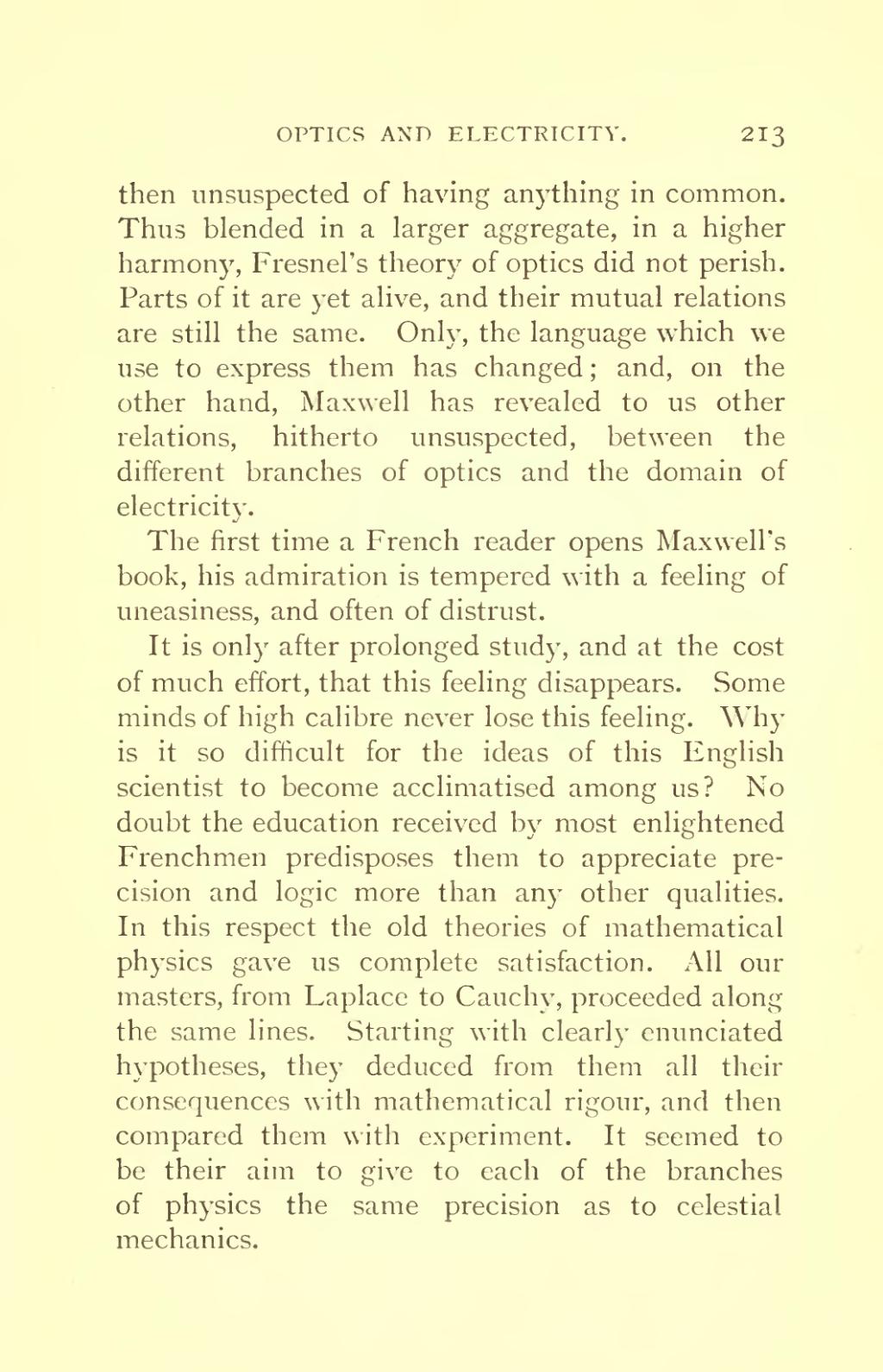then unsuspected of having anything in common. Thus blended in a larger aggregate, in a higher harmony, Fresnel's theory of optics did not perish. Parts of it are yet alive, and their mutual relations are still the same. Only, the language which we use to express them has changed; and, on the other hand, Maxwell has revealed to us other relations, hitherto unsuspected, between the different branches of optics and the domain of electricity.
The first time a French reader opens Maxwell's book, his admiration is tempered with a feeling of uneasiness, and often of distrust.
It is only after prolonged study, and at the cost of much effort, that this feeling disappears. Some minds of high calibre never lose this feeling. Why is it so difficult for the ideas of this English scientist to become acclimatised among us? No doubt the education received by most enlightened Frenchmen predisposes them to appreciate precision and logic more than any other qualities. In this respect the old theories of mathematical physics gave us complete satisfaction. All our masters, from Laplace to Cauchy, proceeded along the same lines. Starting with clearly enunciated hypotheses, they deduced from them all their consequences with mathematical rigour, and then compared them with experiment. It seemed to be their aim to give to each of the branches of physics the same precision as to celestial mechanics.
